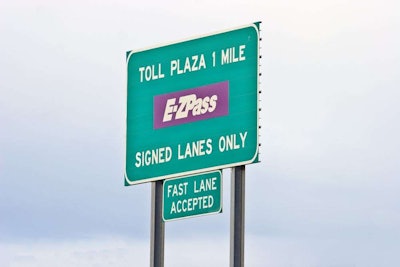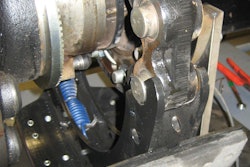
The hearing is part of the Commerce Subcommittee on Surface Transportation’s work on a bill to restore the Department of Transportation’s ability to determine fairness of toll hikes and to give the DOT authority to prescribe more reasonable tolls.
Jay said Baroni displayed “inappropriate discourse and decorum” when questioned by the subcommittee’s chairman, Sen. Frank Lautenberg (D-N.J).
Lautenberg is sponsoring the bill. The legislation was prompted by the Authority’s approval last August of toll hikes that included raising the $40 fee for 5-axle trucks to cross the bridge between the two states to $105 by 2015.
Baroni refused to disclose when New Jersey Gov. Chris Christie knew about the toll hikes, but Lautenberg failed to illicit more information. “You have a responsibility to comment, my friend, whether you like it or not,” Lautenberg said.
AAA’s Chris Plaushin’s testimony was critical of E-ZPass, which he said accounts for almost 40 percent of all U.S. toll transactions and nearly 70 percent of all U.S. toll revenue.
“Tolling agencies that utilize E-ZPass technology and are members of the E-ZPass Interagency Group have recently engaged in a harmful, discriminatory practice of charging drivers who purchase their transponders out-of-state a higher rate than those who purchase their technology in-state,” Plaushin said.
He also said there’s an increasing trend in using toll money to fund projects off the tolled corridor and for projects unrelated to transportation, he said.
NFI Chief Financial Officer Steve Grabell, in testifying on behalf of the American Trucking Associations, cited examples of large toll increases in several states, including the New York Thruway’s 100 percent toll hike that’s being used, in part, to continue subsidizing the state’s canal system.
A January state audit of Baroni’s agency noted numerous problems, such as “insufficient cost controls and a lack of transparent and effective oversight of the World Trade Center program that has obscured full awareness of billions of dollars in exposure to the Port Authority.”
The WTC will receive $11 billion in tolls from the authority, Grabell said.
The port’s Truck Repeat Volume Program, which requires trucks to take at least 100 trips through the authority crossings during off-peak hours in 30 days, does little to help truckers, Grabell said. They cross the bridge based on customer needs, he said, and many small carriers lack the volume of crossings to qualify for a discount.
The ATA supports Lautenberg’s bill, S.2006 (or the Commuter Protection Act), he said.
“Congress has an obligation under the Constitution’s Commerce Clause to ensure that interstate travelers, who may not be represented when toll rate setting and spending decisions are made, have a voice in these processes,” Grabell said.
The Owner-Operator and Independent Drivers Association and AAA also back the legislation, which was referred to the Commerce Committee with one co-sponsor in December.
Also that month. Rep. Michael Grimm, (R-N.Y.) introduced a duplicate of Lautenberg’s bill, H.R.3684, into the House, which was referred to the highways subcommittee with three co-sponsors.










